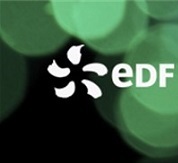Evaluation of an incentive scheme for the energy renovation of low-income households: micro-economic modelling of a great policy with marginal impact
Résumé
With the objective of achieving carbon neutrality by 2050, the building stock will have to switch to low-carbon energy and be renovated through energy efficiency measures. However, access to capital to cover the initial cost is problematic for lowincome households. A national grant program, which is part of the French Energy Efficiency Obligation system, has therefore been dedicated to helping low-income households replace their oil boilers with more efficient and lower carbon heat sources. In this paper we will use a microsimulation model to evaluate the impact of this scheme. This model describes each housing unit individually, which makes it possible to retain a wide variety of situations, all of which have a specific renovation potential and differentiated profitability of actions. A discrete choice model represents the household's options when the space heating system must be replaced. The competition between different technologies relies on their technical and economic characteristics combined with the dwelling and household characteristics, for a given set of energy prices. The grant scheme provides subsidies depending on household income, the type of existing and new system. The simulations show that even taking into account only monetary costs and in the absence of barriers to energy efficiency (e.g. preference inertia), the national support scheme would have very low added value compared to a "Businessas-Usual" trend (counterfactual scenario). Unfortunately, this scheme does not make it possible to reverse the current economic ranking for the least carbon-intensive equipment with the lowest running costs.
| Origine | Fichiers produits par l'(les) auteur(s) |
|---|

